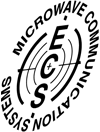Enterprise Control Systems Ltd. (ECS), along with partners Tecnam, Selex Galileo, FLIR Systems and Airborne Technologies, has been carefully selected by Indra to ultimately offer a cost effective airborne system for maritime surveillance.
It is anticipated that the aircraft will be ready to enter service in 2012 and will have the capacity to patrol maritime areas located from 50NM to 200NM offshore.
Indra, the premier IT company in Spain and a leading IT multinational in Europe, is also the leader in Europe in maritime surveillance systems, with systems deployed in Spain, Portugal, Latvia, Romania and Hong Kong. Indra is also the leader of the PERSEUS Project (Protection of European seas and borders through the intelligent use of surveillance). Indra is working on the development of a new maritime surveillance light aircraft in collaboration with Italian aircraft manufacturer Tecnam and companies ECS, SELEX Galileo, FLIR Systems and Remote Sensing and Sensor Integration Company Airborne Technologies.
The partners seek to develop an aircraft equipped to provide state-of-the-art surveillance at a competitive cost in terms of acquisition and operation. The aircraft will be ready to engage in rescue missions, protection of fishing fleets and environment and surveillance of illegal trafficking of either people or drugs to name but a few, by the end of 2012.
This aircraft will patrol maritime zones usually kept under surveillance by coastguards with medium-sized helicopters for a considerably reduced cost and be highly more efficient as it will be equipped with a thorough maritime surveillance system (radar, AIS vessel ID system and a cutting-edge electro-optical device).
To develop a solution of this type, Tecnam’s P2006T platform was selected. This light, twin-engine aircraft is easy to pilot and uses traditional fuel which dramatically reduces costs in operation. It also requires minimal maintenance and can take-off and land on makeshift runways. The aircraft will be able to patrol an area from 50 to 200 nautical miles offshore. This zone is out of the range of coastal surveillance systems and medium-sized helicopters, which can make it up to 100 miles.
In order to cover this zone effectively, the required maritime patrol aircrafts can be acquired and operated at a much higher cost. The competitive cost of this new platform will permit the forces in charge of coastal surveillance and protection of the exclusive economic zone to afford the necessary units to undertake their duties in these waters. At the same time, by reducing operation costs, the aircraft can patrol as many times as necessary.
The participation of ECS and the other partners contributes knowledge and experience to this project to equip the aircraft with the necessary intelligence to engage in maritime surveillance missions. Indra will undertake the implementation of the mission system, the key element to control embarked sensors, integrate collected data and present them to the operator. The mission system also allows control of broadband bidirectional communications with the ground station which receives and submits information in real time as the information generated can be integrated and processed in any existing coastal surveillance or maritime traffic control systems. This is made possible by the integration of the ECS EVENLODE Data Terminal which has been specifically developed to provide features and capabilities ideal for this type of application.
Colin Bullock, managing director of ECS, commented: "ECS is proud to have been selected by Indra to support this key program and it represents an excellent opportunity to further demonstrate the leading edge engineering development that ECS is renowned for. Evenlode specifically represents a key enabling technology that will ensure that ECS remains a leader in the development of COFDM surveillance systems and we look forward to continuing to support Indra and other international datalink development programs with our Evenlode product."
Launched recently by ECS, the EVENLODE COFDM IP data terminal is the company’s most technologically advanced product to date. ECS has dominated the UK Security Sector for over ten years with a range of air-to-ground and ground-to-ground radio links based on the Coded Orthogonal Frequency Division Multiplexing (COFDM) technique.
The company is engineering-led and has a strong team of experienced engineers and recent graduates developing innovative system solutions through groundbreaking technological expertise. Adapted from the Digital Video Broadcast-Terrestrial (DVB-T) standard commonly used within the broadcast industry, ECS has optimised DVB-T COFDM for surveillance use. EVENLODE extends this capability from legacy interfaces by providing a bi-directional data terminal with Ethernet connectivity.
EVENLODE has been developed in parallel with the latest advances in sensor technology. The integration of sensors on a platform has become an important element in distributed Situation Awareness. EVENLODE allows the remote control of sensors on the platform including the standard pan, tilt, zoom of cameras to more sophisticated target selection control through an encrypted uplink interface.
EVENLODE is lightweight, modular and proven for a wide range of air-to-ground, air-to-air and ground-to-ground Information Exchange Requirements (IER). The data terminal is flexible; the system may be installed as a complete, all-in-one unit for larger airframes or, split down into lighter modules for smaller UAVs. The unit may be configured and controlled via the Ethernet interface; an airframe EVENLODE data terminal may be controlled from the air or ground to provide a high data rate, close range link or; a lower, more robust data link for longer range use. The system has also been developed in anticipation of the air aviation industry’s migration from traditional ARINC 429 bus network to more advanced ARINC 664 airframe bus networks.
Avionics Full Duplex Ethernet (AFDX) provides high-speed data bus system for sensor information, replacing legacy video management systems. The EVENLODE data terminal also has the option of an additional input capable of interfacing with video, audio and data separate to Ethernet, through more traditional interfaces, to provide a complete and flexible solution to any data link requirement.
ECS looks forward to working together with Indra and other partners in the future to continue the development of this innovative and flexible capability.

